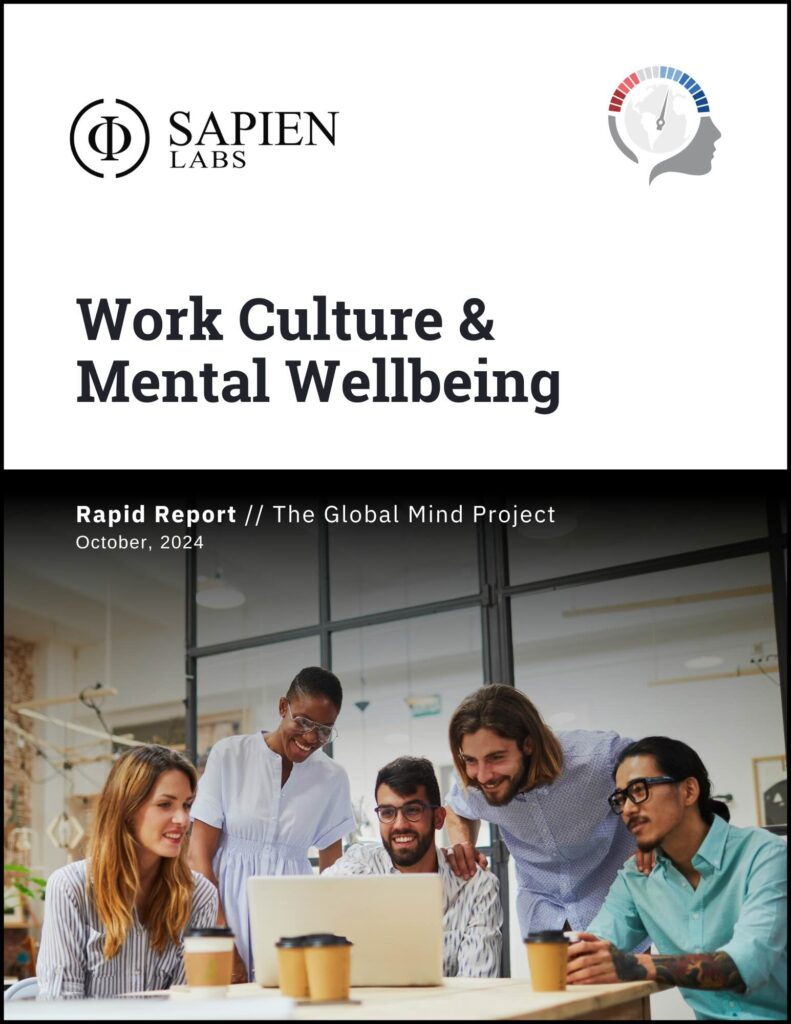Work Culture and Mental Wellbeing
October 10, 2024
With the prevalence of mental distress on the rise around the world, especially in younger generations, mental health and wellbeing has increasingly become a topic of concern for employers. As a result, workplace mental wellbeing programs such as meditation and mindfulness apps and therapy have increasingly gained traction across companies. However, some studies suggest that these don’t work.
To really tackle mental health in the workplace, organizations must understand the root causes of the mental health challenges that employees experience. Only then, can they become strategic not just about mitigating the challenges but cultivating workplaces with strong mental or mind health.
Using data from 54,831 employed, Internet-enabled respondents across 65 countries obtained in 2024, this study looks at multiple aspects of work culture and structure to determine how they relate to employee mental wellbeing. It uses an assessment of mental wellbeing that uniquely defines and measures mental wellbeing as the ability to navigate life’s challenges and function productively, or essentially the capacity of mind.
Key Findings:
- Having poor relationships with colleagues and a low sense of pride and purpose in one’s work are associated with the biggest decreases in overall mental wellbeing, on par with having challenges with family relationships.
- Those who rated these factors poorly are more likely to have feelings of sadness and hopelessness, unwanted, strange thoughts, reduced energy, decreased drive and motivation, physical health issues and a sense of being detached from reality, even after controlling for other factors.
- ‘Work-life balance’ factors such as workload and flexibility over time are also important, but less so. Excess workload, for instance, results in poor sleep, diminished self-worth, worse appetite regulation and even increased nightmares, while lack of flexibility over time had much smaller impacts on similar factors.
- Those working remotely fared worse, on average, than those working in person or hybrid. Similarly, those working alone fared worse, on average, than those in larger teams, and those in jobs involving customer service and physical labor fared worse than those in human care, knowledge work and business management jobs.
- The 9 aspects of work culture that we looked at had a several-fold greater impact on mental wellbeing than aspects of work structure, such as whether one worked remotely or in person, alone or in a team and the type of job.
Read the Report
Download the Report (in English)
Download the Report (in Spanish)
Download the Data Tables
View Data Graphs
Cite this report as: Work Culture and Mental Wellbeing, Global Mind Project, Sapien Labs, October, 2024.
This report is based on data from 54,831 employed internet-enabled respondents across 65 countries, obtained between March and September 2024 as part of the Global Mind Project. Data were collected using an assessment called the Mental Health Quotient, or MHQ, which assesses 47 aspects of mental feeling and function that are aggregated into a overall mental wellbeing score that reflects someone’s ability to navigate life’s challenges and function productively, or essentially their capacity of mind.
It’s important to note that this data is from online respondents and does not include people without internet access. This will have a bigger impact in some developing countries where many communities live offline.

